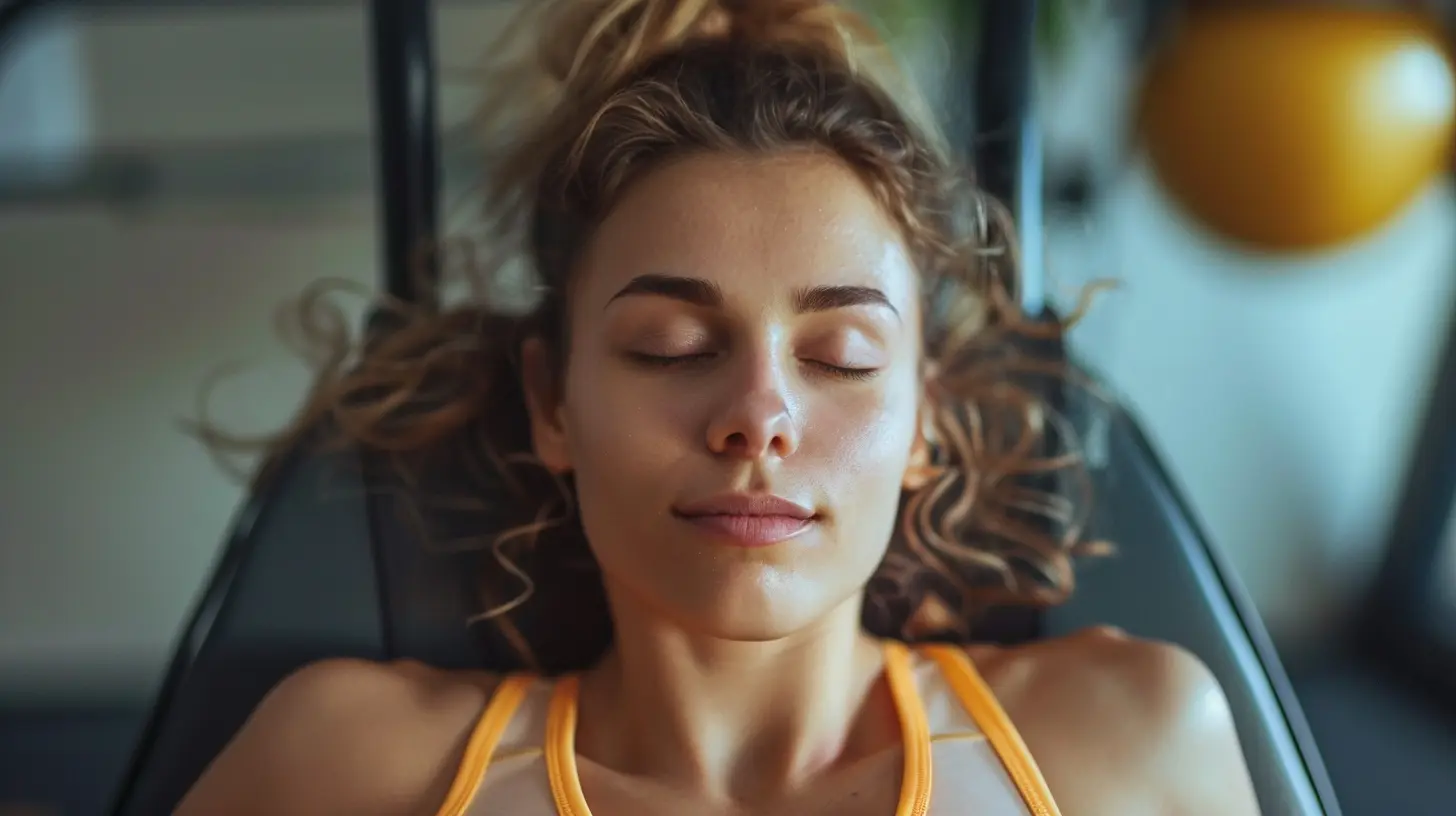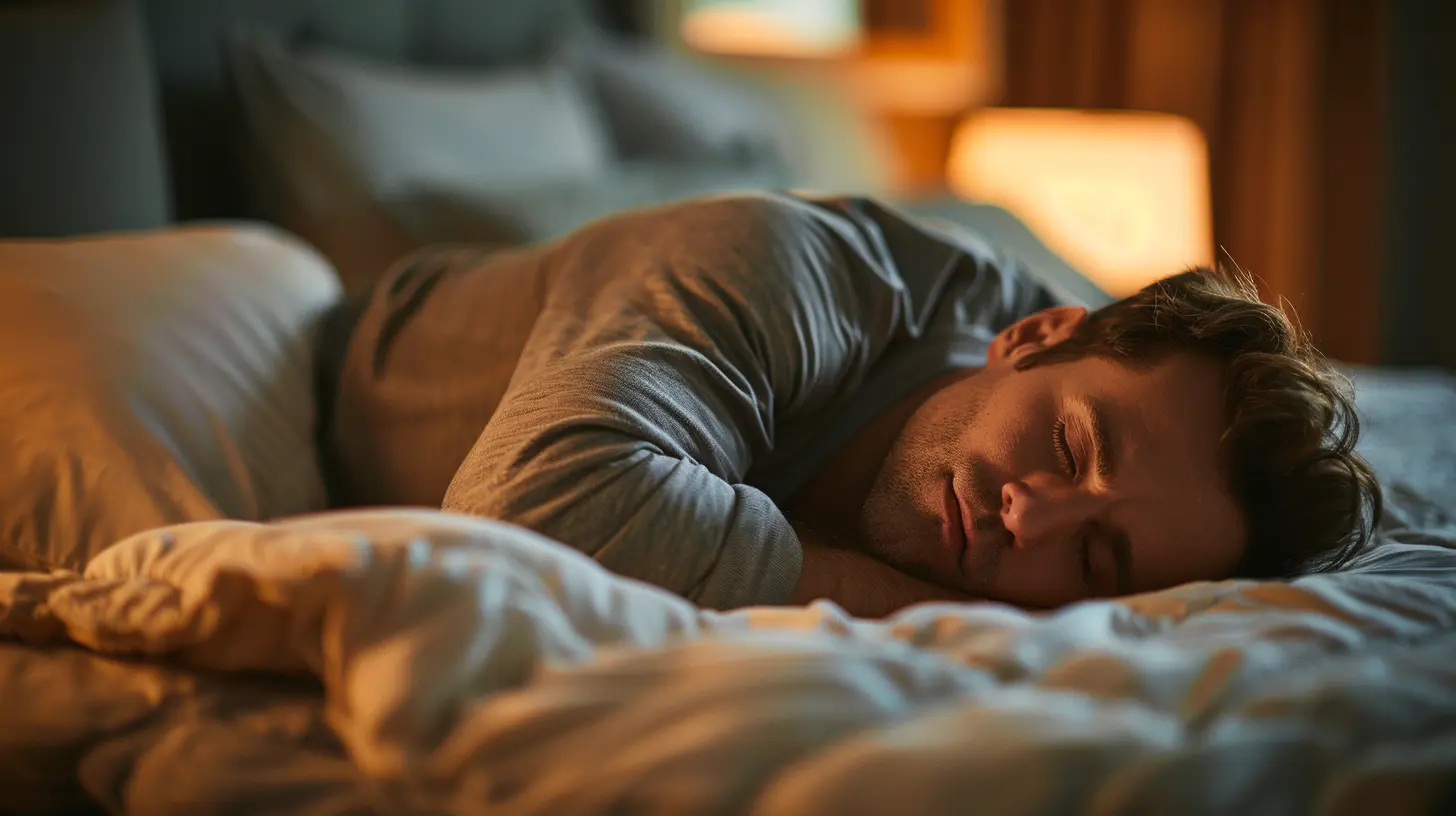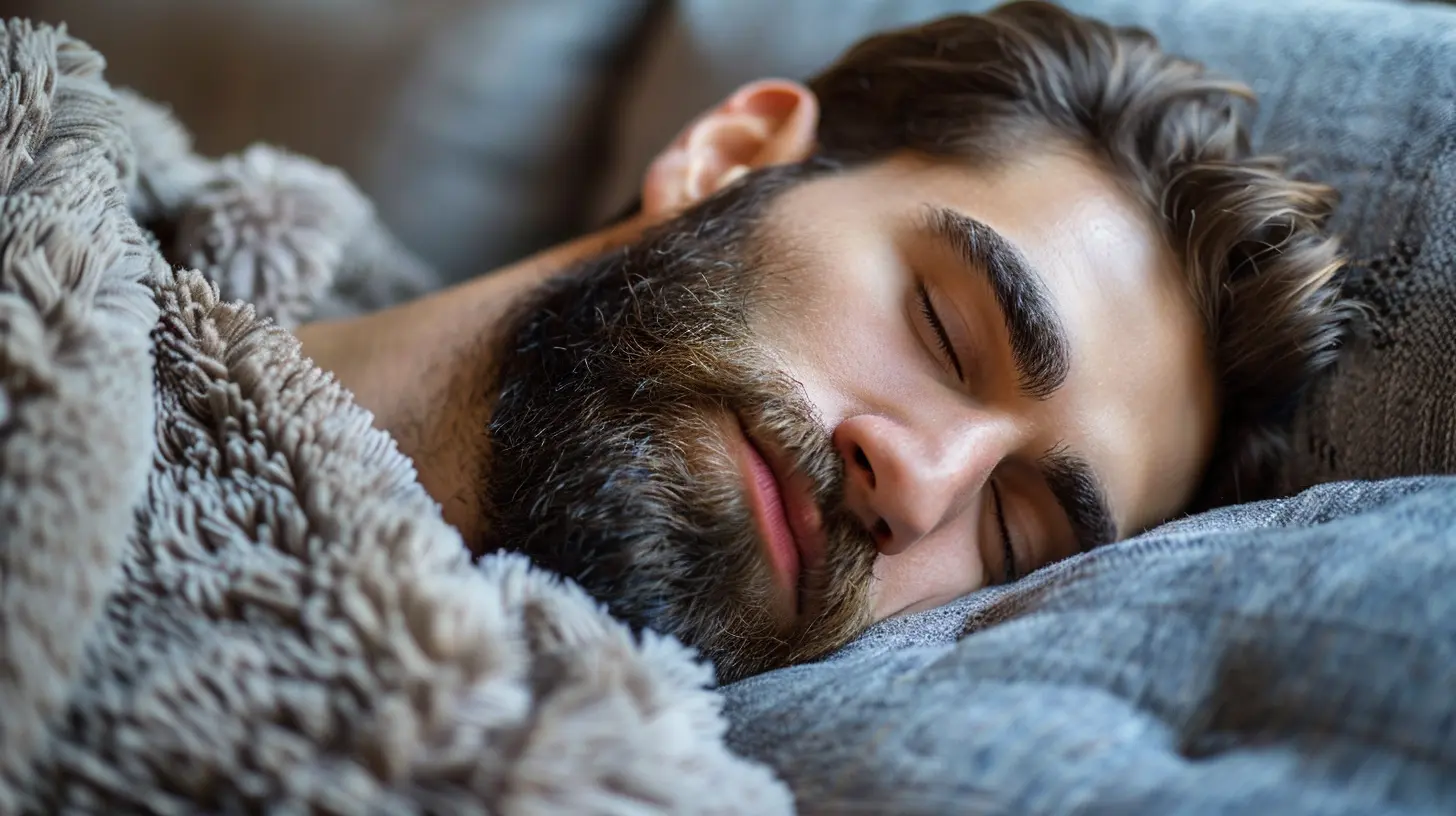How Regular Exercise Can Improve Sleep Quality
7 November 2025
Let’s be honest—we all love a good nap. You know, the kind where you wake up drooling a little and wondering what year it is. But for many of us, getting quality nighttime sleep feels like chasing a unicorn. Tossing, turning, counting imaginary sheep like it’s our side hustle. Ringing any bells?
What if I told you that the secret to better shut-eye isn’t some fancy lavender mist or a $200 weighted blanket—it’s good ol’ exercise. Yep, breaking a sweat by day can help you snooze like a baby by night. Stick around, because we're diving deep into how regular exercise can improve sleep quality… and why lacing up your sneakers might be the best bedtime prep you never knew you needed.
The Sleep Struggle Is Real
First things first—let’s chat about why sleep matters. Getting adequate Zzz’s isn’t just about staving off dark under-eye circles or being less cranky than a toddler denied cookies. Sleep plays a massive role in:- Repairing muscles
- Boosting memory
- Balancing hormones
- Strengthening immunity
- Keeping your mood from spiraling into drama-ville
Yet, according to surveys, roughly 1 in 3 adults don't get enough sleep. Blame Netflix binges, late-night tacos, or the never-ending doom scroll—modern life just isn’t sleep-friendly. So, what’s the fix?
Cue the action montage: ✔️ gym shoes ✔️ yoga mat ✔️ playlist pumping. It’s time to talk exercise.
How Does Exercise Impact Sleep, Exactly?
Great question. Think of exercise as sleep’s wingman—they work together like peanut butter and jelly (or almond butter and banana if you’re fancy).Here’s what’s happening behind the scenes when you move your body:
1. It Tires You Out—in a Good Way
When you exercise, especially cardio (think running, swimming, dancing like nobody’s watching), you expend energy. Duh, right? But that physical fatigue actually nudges your body into craving rest. So when your head hits the pillow? Boom. Lights out.2. It Regulates Your Circadian Rhythm
Ever heard of your circadian rhythm? It's your internal clock that tells you when to rise and shine or retreat to your cave and hibernate. Exercise helps synchronize this biological ticker by exposing you to natural daylight (if you're exercising outdoors), promoting alertness in the day and melatonin production at night.Think of it like tuning a guitar—you want all the strings (or organs, in this case) working in harmony.
3. It Reduces Stress and Anxiety
Let’s be real: Stress is the ultimate sleep villain. Your mind races; your heart thumps like techno music at 2 a.m. Exercise, however, is like nature’s anti-anxiety pill. It releases endorphins, aka the feel-good chemicals, reducing cortisol—the hormone that loves to crash your sleep party uninvited.Bonus? You don’t need a prescription!
4. It Improves Sleep Onset and Duration
That’s science-speak for: it helps you fall asleep faster and stay asleep longer. Some studies suggest consistent exercise can even reduce the time it takes to fall asleep by 55% and increase sleep duration by up to 18%. Not too shabby, right?
The Best Types of Exercise for Catching Better Zzz’s
Not all workouts are created equal when it comes to sleep benefits. Let's break them down:🏃♀️ Aerobic Exercise (Cardio)
Running, cycling, brisk walking, or dance-offs in your living room—any form of cardio can drastically improve sleep quality. Studies show that even moderate aerobic exercise increases slow-wave sleep (the deepest, most restorative kind).🧘 Yoga and Stretching
If cardio is the energizer bunny, yoga is the wise old owl. Gentle flow helps calm the nervous system, stretch tense muscles, and prepare your body for slumber. Plus, it’s basically bedtime with moves.🏋️ Strength Training
You'd think pumping iron would jack you up like an espresso shot, but research shows resistance training can help you sleep like a log—especially if done earlier in the day. Just maybe skip the 10 p.m. deadlifts.🚶♂️ Walking
Don’t underestimate the humble stroll. A 30-minute walk in the sunshine not only gets your body moving but also resets your day-night cycle. It’s like hitting Ctrl+Alt+Del on your internal clock.
Morning vs Evening Workouts: When’s the Best Time?
Ah, the age-old debate.Some say early morning workouts are gold for jumpstarting your day and regulating sleep patterns. Others find that evening exercises help them unwind and let go of the day's stress pile.
So, which is better?
Honestly? It depends on you.
🏁 Morning workouts may support a stronger circadian rhythm and give you a natural energy boost.
🌙 Evening workouts, especially low-to-moderate intensity, can still promote better sleep—just don’t go beast mode an hour before bed, or your adrenaline might not get the memo.
Rule of thumb: Aim to finish exercising at least 1-2 hours before you hit the hay.
How Much Exercise Do You Need for Better Sleep?
Good news: You don’t need to become a gym rat to reap the sleep benefits.The magic formula? About 150 minutes of moderate aerobic activity per week—that’s like 30 minutes a day, five days a week. Totally doable, right?
If you're just starting out, don’t sweat it (pun intended). Even short 10-minute movement breaks throughout the day add up. And the more consistent you are, the more you’ll notice the sleep perks.
Potential Pitfalls: What To Watch Out For
Let’s not pretend exercise is some pixie dust that instantly knocks you out at bedtime. There are a few caveats:- Overtraining = Overstimulation: Overdoing it can actually hurt your sleep, not help. That’s your body’s way of saying "chill, please."
- Workout timing matters: Like we said, avoid intense workouts right before bed if they amp you up more than a triple espresso.
- Expectations vs. Reality: While exercise helps, it’s not a cure-all. Other factors—like caffeine, screen time, or that late-night spicy burrito—still matter.
Real Talk: My Personal Sleep-Exercise Glow-Up
Let me tell you a secret: I used to be the queen of sleepless nights. Seriously, if tossing and turning were an Olympic sport, I’d have gold medals. But after committing to just a few weekly jogs and some yoga, I noticed a massive change.Now, I hit the hay without the mental ping-pong, and I wake up feeling like Snow White (minus the seven roommates).
It's not magic. It's movement.
Bonus Tips for Maximizing Sleep Gains from Your Workouts
Since we’re friends now, here are a few extra nuggets of wisdom:- Stay hydrated—but not too hydrated right before bed unless moonlit bathroom trips are your jam.
- Light matters: Get outside during the day to support your body’s clock and sleep hormones.
- Cool it down: A cooler room (around 65°F/18°C) helps signal that it’s sleepytime.
- Stretch post-exercise: Helps with muscle recovery and reduces soreness that could wake you up.
So… Should You Start Exercising for Better Sleep?
If you’re still on the fence, let me put it this way: Workout = Tired Muscles = Brain Less Annoying at Bedtime = Better Sleep = Happier You.Not only will you sleep better, but you’ll also feel more energized, focused, and just... more you. It’s like upgrading your operating system—without the annoying software updates.
Don’t overthink it. Lace up your shoes, press play on your go-to playlist, and move your body. Your dreams are waiting (literally).
—
Final Thoughts
Sleep isn’t just a passive activity—it’s a vital part of your health, mood, and productivity. And exercise? It's one of the most powerful, natural, and accessible tools you’ve got to improve it. Whether you’re doing jumping jacks in your PJs, walking around the block, or channeling your inner warrior on a yoga mat, every move counts.So go ahead—sweat now, snooze later.
Sweet dreams, friend!
all images in this post were generated using AI tools
Category:
ExerciseAuthor:

Sophia Wyatt
Discussion
rate this article
1 comments
Destiny Good
Great article! It’s fascinating how regular exercise can significantly enhance sleep quality. Thank you for sharing these insights!
November 10, 2025 at 5:11 AM

Sophia Wyatt
Thank you! I'm glad you found the insights helpful! Regular exercise truly does wonders for sleep quality.


